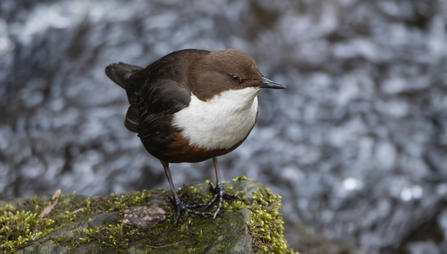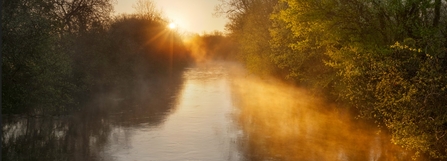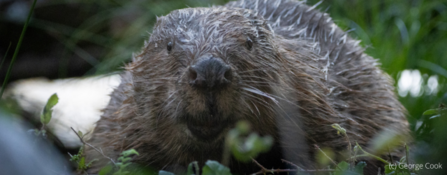Rivers are vital habitats for all sorts of wildlife from charismatic otters and beavers, to stunning birds such as kingfishers and dippers as well as a huge variety of species of fish, amphibians and invertebrates. They are vital for us too providing us with clean drinking water or a place to go for a peaceful walk or to enjoy some recreational activities. Whether you’re someone who enjoys paddleboarding, fishing, swimming or just relaxing by the river, you should be concerned about the health of our rivers!
Help protect our rivers!
(c) Guy Edwardes / 2020Vision

(c) George Cook
The Nutrient Neutrality Amendment
In recent weeks, there has been even more bad news regarding rivers as the government proposed amendments to the Levelling Up Bill that would further damage our already polluted rivers. These changes would allow local councils to ignore water pollution when making decisions regarding housing developments near rivers. This is the ‘nutrient neutrality’ amendment which is due to be debated in the House of Lords this week before going back to MPs and then being debated and voted on in the house of commons, likely in early October.
To better understand the nutrient neutrality amendment, read the latest blog by Ali Morse, The Wildlife Trust’s Water Policy Manager who has explains the issue clearly.
Craig Bennett, CEO of The Wildlife Trusts took to twitter to express his thoughts on the recent amendment. He said that this is “the first time, really, in 30 years we’ve seen a reversal in our environmental protections… The announcement this week is not just reducing environmental protections its taking a sledgehammer to parts of the former habitats directive.”
The government have continuously promised that they would not weaken environmental protections after Brexit and now with the nutrient neutrality amendment they have done just that. Craig Bennett continued “They’ve broken their promises, they lied to parliament and to the British people and we have the right to be angry about that.” Although this amendment would just relate to developments in England, nature knows no boundaries and what happens to one river will result in impacts to other rivers, lakes and coastlines all over the UK.
Ian Barrett, CEO of Avon Wildlife Trust said “So much work is going into improving rivers for wildlife across our area, like our Wilder Waterways project on the River Yeo, and our work with beavers on the River Avon. We need government to do its part to prevent and reverse the ongoing damage that nutrient pollution is doing to wildlife and habitats. The nutrient neutrality rules are a key part of that for some of England’s most sensitive wildlife habitats”.

(c) Guy Edwardes /2020Vision
What can you do to help?
There’s lots that you can do to help this vital issue. You can share your thoughts with your MP and let them know that you want to see rivers protected. Visit the webpage below to access a simple step by step on how to contact your MP via post or online.
https://www.wildlifetrusts.org/defend-nature
Adding your name to the following petitions will also help to raise more noise about why rivers are so important.
River action have a petition here:
Rescue Our Rivers | 38 Degrees
And there is also a gov.uk petition that is currently awaiting moderation but will be live soon and can be found on the link below:
https://petition.parliament.uk/petitions/643133/moderation-info
Social media is also very important to the debate at the present so we encourage you to get online and share your opinions. Thank you for standing up for rivers!
#NutrientNeutrality
#Defend Nature

(c) George Cook

